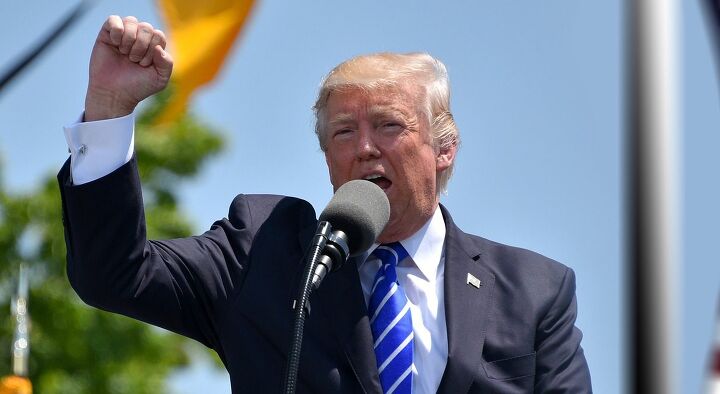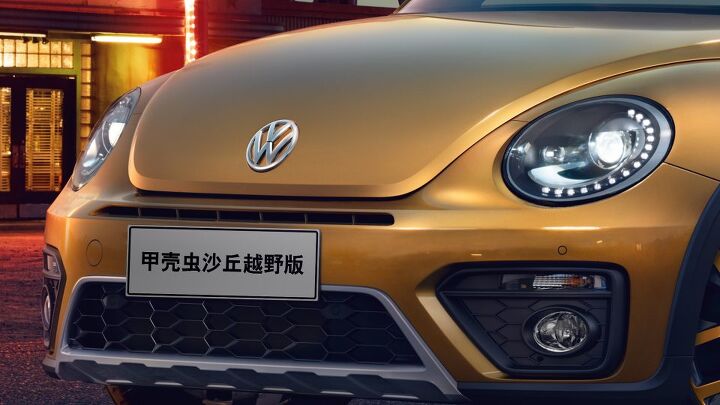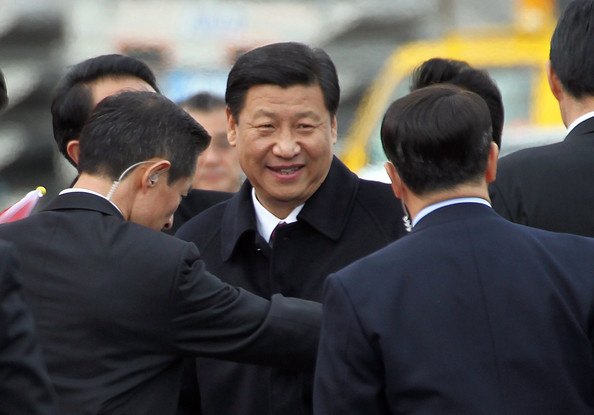#XiJinping
Trade War Watch: China to Temporarily Suspend U.S. Auto Tariffs
China announced Friday its intent to reduce tariffs on imports of American-made cars as it tries to negotiate a trade deal with the United States. As you’ll recall, the People’s Republic imposed additional punitive tariffs on U.S. cars and auto parts earlier this year after promising it would lower the trade barriers on a global scale.
Things look to be different this time around. China has already taken steps to scale back the trade war and appears ready to continue down that path. Earlier this month, President Donald Trump and Chinese President Xi Jinping agreed to a truce in the trade war at their meeting in Argentina. This was followed by an announcement, via Trump’s Twitter account, claiming China had agreed to scale back auto tariffs against the United States.
Trade War Watch: Trump Says China Will Remove Car Tariffs, China Claims Nothing
Last night President Donald Trump tweeted that China had agreed to reduce tariffs. While The People’s Republic already lowered tariffs over the summer, it chose to cut the United States out of that deal as trade relations worsened. In fact, America found itself subject to an increased, 40-percent fine on imported autos while the rest of the world saw their tariffs (partially) eased. But the president seems optimistic.
“My meeting in Argentina with President Xi of China was an extraordinary one,” Trump explained in a follow-up post. “Relations with China have taken a BIG leap forward! Very good things will happen. We are dealing from great strength, but China likewise has much to gain if and when a deal is completed. Level the field!”
Meanwhile, China remains silent on the matter.
Trade War Watch: Germany and China Now Best Friends
China and Germany signed a collection of commercial accords valued at $23.5 billion this week. Meanwhile, the nations’ leaders publicly affirmed their commitment to a multilateral global trade order, while the United States adopts a more protectionist policy.
“We both want to sustain the system of World Trade Organization rules,” German Chancellor Angela Merkel said during a press conference. Chinese Premier Li Keqiang, also present, agreed and stated protectionism must be prevented for the good of the global economy.
Chinese President Xi Jinping has already pleaded for governments to maintain an open trading policy. “We reject selfish, shortsighted, closed, narrow policies, [we] uphold World Trade Organisation rules, support a multi-lateral trade system, and building an open world economy,” Xi said in an incredibly hypocritical speech from last month.
Trade War Watch: China to Reduce Import Tariffs for Cars and Components
China has announced plans to slash import fees on automobiles to 15 percent starting this July. While the tariff currently rides high at 25 percent, the country’s Ministry of Finance said reducing it was part of an intentional effort to open up China’s markets and spur development within the local automotive sector.
It may also have been part of a peace offering. President Donald Trump has been pretty clear on China’s trade policies with the United States, frequently referring to them as unfair. The U.S. imposes a svelte 2.5 percent fee on imported vehicles — unless we’re talking about trucks. “Does that sound like free or fair trade?” Trump tweeted last month. “No, it sounds like STUPID TRADE — going on for years!”
All About Imports: Chinese President Tries to Mellow Blossoming Trade War With U.S.
“Paramount Leader” and Chinese President Xi Jinping clearly hopes to defuse China’s trade situation with the United States after Donald Trump launched an aggressive tariff hike on metals last month. The People’s Republic has already filed a complaint with the World Trade Organization alleging Trump’s decision to impose additional duties of 25 percent on steel and 10 percent aluminum violate international trade rules.
It’s also requesting 60 days of consultations with the United States to resolve the dispute.
There’s also an olive branch on the table. Xi has promised to cut auto import taxes and improve intellectual property protections in a bid to bolster foreign exports and ease tensions before the U.S. and China enter into a full-blown trade war. Meanwhile, the White House is threatening to increase duties on $50 billion worth of Chinese goods in response to claims that China essentially bullies foreign companies to hand over technology in order to sell it inside the country.
Tavares Could Take Reins at PSA Peugeot Citroen in March
Sources close to the situation tell Reuters that Carlos Tavares, Carlos Ghosn’s former second in command at Renault, could start running rival PSA Peugeot Citroen as soon as March. Tavares officially joined PSA as CEO-in-waiting on Jan. 1. According to Reuters, Peugeot had previously said only that Tavares would take over sometime this year. Peugeot Chairman Thierry Peugeot told Le Figaro in an interview published over the weekend that the company’s board of directors would soon decide on the official transition date.
Volvo Deal Expected To Be Sealed This Weekend
China’s vice-president Xi Jinping (above) is packing his bags for a state visit to Sweden, where he and his entourage will arrive this Saturday. He doesn’t go there to watch pretty blondes. (He doesn’t fancy blondes, see picture below.) Xi Jinping wants to come back to Beijing with a Swedish souvenir: A signed contract between Ford and Geely that will seal the sale of Volvo.






















Recent Comments